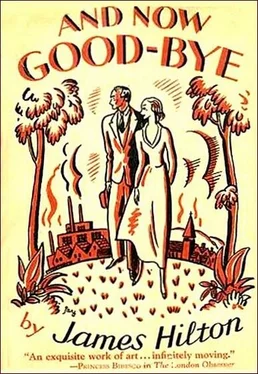“It has, yes.”
“Which means, I suppose, that you’ve been having the same worry that ninety-nine people out of every hundred have nowadays when they feel a pain. Oh, you needn’t bother to confide in me—I know all about it. Even doctors aren’t immune. I made a report on one the other day—a woman doctor—she suspected she had an internal carcinoma, but it turned out she was only going to have a baby. So you see—”
“You mean, then, that there’s nothing wrong with me? ”
“My dear sir, there’s a very great deal wrong with you. You are, I should say, within a very short distance of a serious nervous breakdown. But apart from that, which is quite bad enough, surely, I don’t find anything much amiss—your heart and lungs are sound, you have a reasonable blood pressure, and as for the larynx—well, clergyman’s sore throat is rather a vocational disease, isn’t it?”
He went on to say a great deal more, but Howat did not hear him, and was hardly aware of the three pound notes that somehow escaped from his wallet and into the doctor’s. The fee, in fact, was three guineas, but Howat forgot the odd shillings and Blenkiron did not remind him. Of that final handshake and the maid’s guidance through the hall to the street-door Howat was almost totally unconscious; but the cold air awakened him when he found himself standing on the pavement outside the house, with his hat and gloves still in his hand and the street-lamps glittering like chains of gems in either direction. Beyond them, into the star-speckled sky loomed the tall grey houses, and a taxi came cruising slowly down that enchanted canyon. Howat raised his hand; the driver pulled up at the kerb; Howat sprang inside, without a word till the driver asked where he was to drive to; then Howat stammered—“Oh, yes, of course—the main street, where the shops are—Oxford Street, yes—oh, anywhere…”
He sat well forward on the seat and stared hard out of the window, as one who had somehow never used his eyes before. It did not even occur to him that he had never been in a London taxi before, so completely was that trivial novelty submerged in the vaster novelty of life itself. All the doubts and miseries of the last few months were lifted; the barrier was down, and life stretched ahead of him like a new dream, buoyant and zestful and rich in promise. He opened the window, despite the cold, and took in deep draughts of air that seemed to him purer than any he had ever breathed before; he could see a woman crossing the road with a pram and smiling at the baby inside it; there, over there, two men were standing at a corner reading the same newspaper and laughing; in the middle of the road a night-watchman slowly filled his pipe as he settled himself beside a brazier-fire. And suddenly, with a little swirl, the taxi turned out of that lovely tributary into the full tide of the river itself, that blazing river of shops and omnibuses and skysigns—Oxford Street. “Go on!” he shouted through the window on the driver’s side, and then sank back amidst the cushions with glorious exhaustion.
The cab soon became embedded in a long line of slow-moving traffic, and he thought, during those moments, that he had never seen anything in the world so truly lovely as that pageant of shop-windows and eager happy faces. There was one window full of gorgeously tinted silks, slung rainbow-like from corner to corner, and there was a shop that had a machine in the window that twisted skeins of toffee together, and a sky-sign, high up above, that gave the weather forecast in scampering electric letters, and a huge shop-building with a frontage of Ionic columns silver-white in the upward glow of arc-lamps, and people, people—hundreds and thousands of them in one long, throbbing, colourful fresco of life itself.
And the loveliness was in his ears as well—he heard the clamour of motor-horns and the shouting of newsboys and all the mingled noises of streets and houses like some triumphant symphony on a new theme; he wanted to join in it, to lean his head out of the window and shout to someone in sheer exultation; and then he thought: Steady, Steady—keep calmer—you’ve got a happy evening before you—there’s that concert—have you forgotten it? They’re playing Brahms…and all at once, with that little twist of recollection, his mind was flooded with imagined melody, and he saw himself, as in those ridiculous boyhood dreams, standing on a conductor’s rostrum, baton in hand, controlling a world of his own creation.
There were trees now, iron railings, vistas of glittering headlights, and a faint smell of wood-smoke on the air; then he caught sight of a clock—twenty-five past five—and suddenly remembered that business at Charing Cross. His spirits fell momentarily at the thought, but rose again almost instantly and with new intensity, for his imagination transformed him magically from the conductor of an orchestra into an orator of burning zeal, a Peter the Hermit and Savonarola combined, whose impassioned pleadings no sinner could hope to resist. He was certain now that he would meet that girl, talk to her, convince her, and have her returning to Browdley that very night; there was no longer any doubt about it; he could not fail with this new and god-like strength that was in him. He put his head out of the window and called to the driver—” Charing Cross—the post office—as quick as you can!”
It was beginning to be the evening ‘rush’ period, and the taxi was held up many times, at the Marble. Arch, at Berkeley Street, and for several minutes at Piccadilly Circus. It was nearly a quarter to six when Howat stepped to the pavement at the corner of Trafalgar Square; he was rather excited by that time; perhaps she hadn’t come, or had got tired of waiting; he paid the driver, adding a far too lavish tip, and found him-self staring vacantly at buses and sky-signs and a pavement artist’s drawings of Ramsay MacDonald and Lloyd George; it was an absurd place, he reflected, as he became conscious of the crowds all about him, to have fixed for meeting anyone, especially someone he didn’t know very well.
He had been staring about for several minutes when he felt a hand touching his arm. He looked round and saw a girl, and though he knew immediately that it was Elizabeth Garland, he was certain he would never have recognised her of his own accord. Really, it was as if he had never seen her before.
“Good evening, Mr. Freemantle,” she said, in a slow soft- toned voice (it was as if, too, he had never heard it before), and he said “Good evening” and observed her rather incredulously. A certain sense of the extraordinariness of the situation came over him, and with a little effort he made himself recollect how matters stood—he a Browdley parson meeting a young girl at Charing Cross to persuade her not to run away to Paris with an elderly Jew with a bald head and gold teeth (he could not unfix that graphic picture from his mind). But the picture gave him renewed and indignant confidence; by God, he thought, glancing at her again, she mustn’t do a thing like that; it would be worse than an offence against morals, it would be—and then he checked himself and wondered what could be worse than an offence against morals? Dimly he felt that something could be, and the feeling, obscure and transient, linked itself with all the new and astonishing perceptions that were invading him from all directions. By God, no, she mustn’t; he must prevent her, at all costs. And, as earnestly as he had ever prayed for anything, he prayed, wordlessly, for strength to achieve that end.
“I got your letter,” she was saying, returning his glance with one just as curious. “It was nice of you to think of meeting me. Are you in London for long?”
Читать дальше











